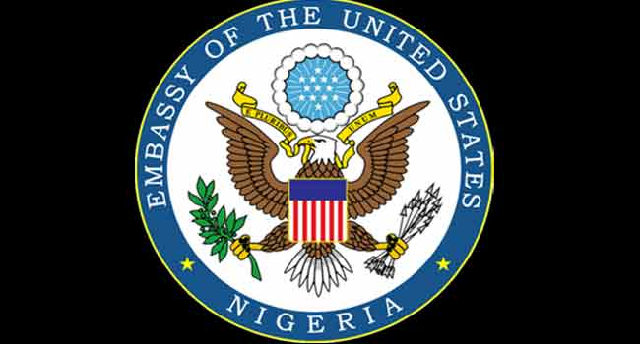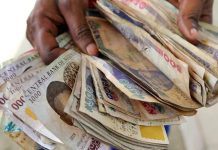Barely a week after after 80 Nigerians were charged with conspiracy to commit fraud, conspiracy to launder money and aggravated identity theft, the United States government has said that effective from August 29, 2019, Nigerian citizens would be required to pay a visa issuance fee, or reciprocity fee, for all approved applications for non-immigrant visas
The US Mission in Nigeria in a statement issued on Tuesday said that the reciprocity fee would be charged in addition to the non-immigrant visa application fee, also known as the MRV fee, which all applicants pay at the time of application.
The US government explained that Nigerian citizens whose applications for a non-immigrant visa are denied would not be charged the new reciprocity fee, while both reciprocity and MRV fees are non-refundable, and their amounts vary based on visa classification.
According to the statement, Effective worldwide on 29 August, Nigerian citizens will be required to pay a visa issuance fee, or reciprocity fee, for all approved applications for non-immigrant visas in B, F, H1B, I, L, and R visa classifications.
The US explained that the reciprocity fee would be required for all Nigerian citizens worldwide, regardless of where they are applying for a non-immigrant visa to the United States.
The US added that the reciprocity fee is required for each visa that is issued, which means both adults and minors whose visa applications are approved would be charged the reciprocity fee.
The US said that the fee could only be paid at the U.S. Embassy or the U.S. Consulate General, stressing that the reciprocity fee cannot be paid at banks or any other location.
The statement said, “U.S. law requires U.S. visa fees and validity periods to be based on the treatment afforded to U.S. citizens by foreign governments, insofar as possible. Visa issuance fees are implemented under the principle of reciprocity: when a foreign government imposes additional visa fees on U.S. citizens, the United States will impose reciprocal fees on citizens of that country for similar types of visas. Nationals of a number of countries worldwide are currently required to pay this type of fee after their non-immigrant visa application is approved.
“The total cost for a U.S. citizen to obtain a visa to Nigeria is currently higher than the total cost for a Nigerian to obtain a comparable visa to the United States. The new reciprocity fee for Nigerian citizens is meant to eliminate that cost difference.”
The statement noted that since early 2018, the U.S. government has engaged the Nigerian government to request that the Nigerian government change the fees charged to U.S. citizens for certain visa categories.
It said after eighteen months of review and consultations, the government of Nigeria has not changed its fee structure for U.S. citizen visa applicants, requiring the U.S. Department of State to enact new reciprocity fees in accordance with its visa laws.
The US noted that the complete reciprocity fee schedule, organised by visa classification, included B1- $110, B2-$110, B2/B2-$110,
It added that the reciprocity tables displayed on travel.state.gov would be updated to reflect the changes above.
Source: THISDAY











